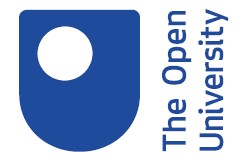The AUG’s latest report, ‘The Arc in Space’, supported by The Open University, illustrates the significant potential of the Oxford-Cambridge Arc’s contribution to the UK space sector. The Arc hosts a number of universities with highly advanced capabilities in space research and education, as well as links to adjacent drone and aerospace technologies. The economic potential of this cluster is enormous.
Following the Government’s report on the ‘Size and Health of the UK Space Industry’ last week, Science minister Amanda Solloway said:
“The sector is at the heart of the government’s plan for jobs and growth. We’ll keep working with space companies large and small to push the frontiers of science and exploration as we build back better from the pandemic.”
Space is the final frontier. It excites curiosity as we look up at the night sky. But more, it’s a domain that will soon become more a part of our daily lives and livelihoods, providing jobs for the future.
Working together, the universities across the Arc can realise the potential of the space sector to bring growth and employment. Investment in space technology is therefore one of the Arc’s key priorities. The universities, working alongside government, the Satellite Applications Catapult and industry, are using space science to deliver advances in artificial intelligence, machine learning, robotics, and quantum applications. This will create skilled employment in new industries, and opportunities for doctoral and academic research that attract major research funds to the Arc. For many, the word ‘space’ evokes images of rockets, astronauts and inter-planetary missions. But space touches our daily lives, from our satellite navigation systems and the technology that drives our mobile phones, to the entertainment that appears on our screens at home. Space technologies can also achieve much social good, enabling us to monitor food and water security, predict storms and hurricanes, track climate change, and predict extreme weather events.
Leading the creation of the report, The Open University is widely respected for its capability in this field of science. From discoveries of new planets, findings from instruments used on missions such as the ExoMars mission, and the work on the possibility of humans living and working on the Moon, including initiatives such as the national SPace Research and Innovation Network for Technology (SPRINT) programme. As one of the most distinguished space scientists at The Open University, Professor Monica Grady, puts it…
“We explore space to solve problems back on earth.”









